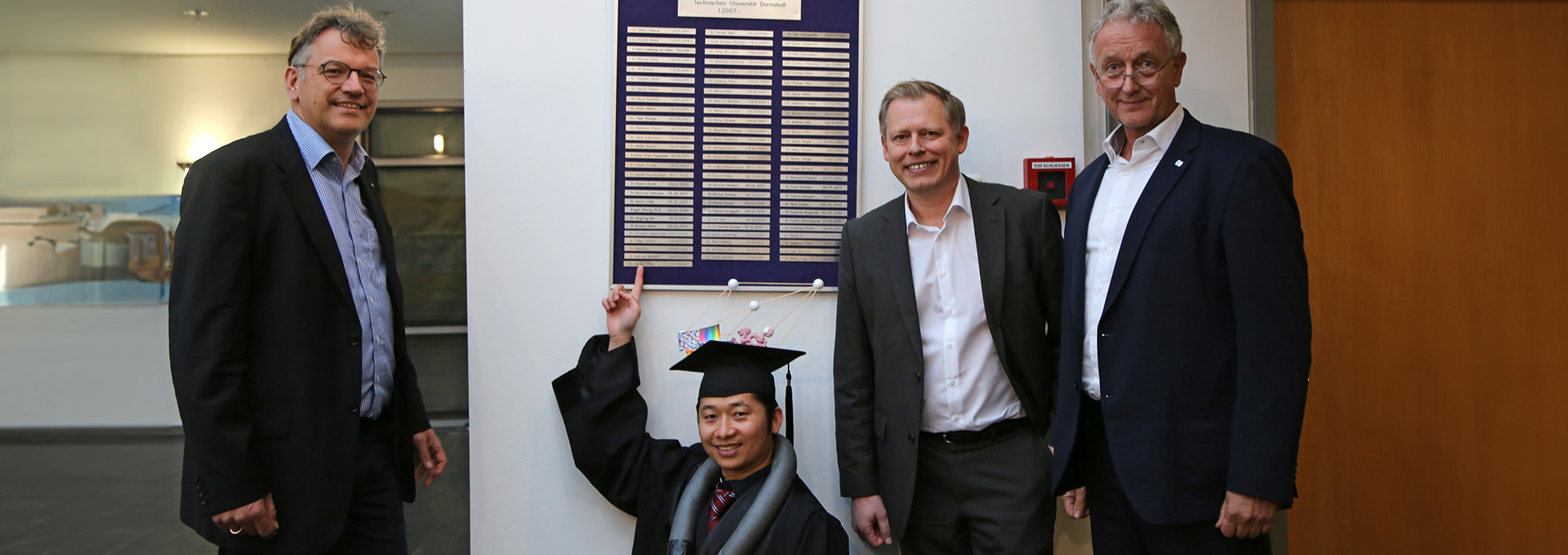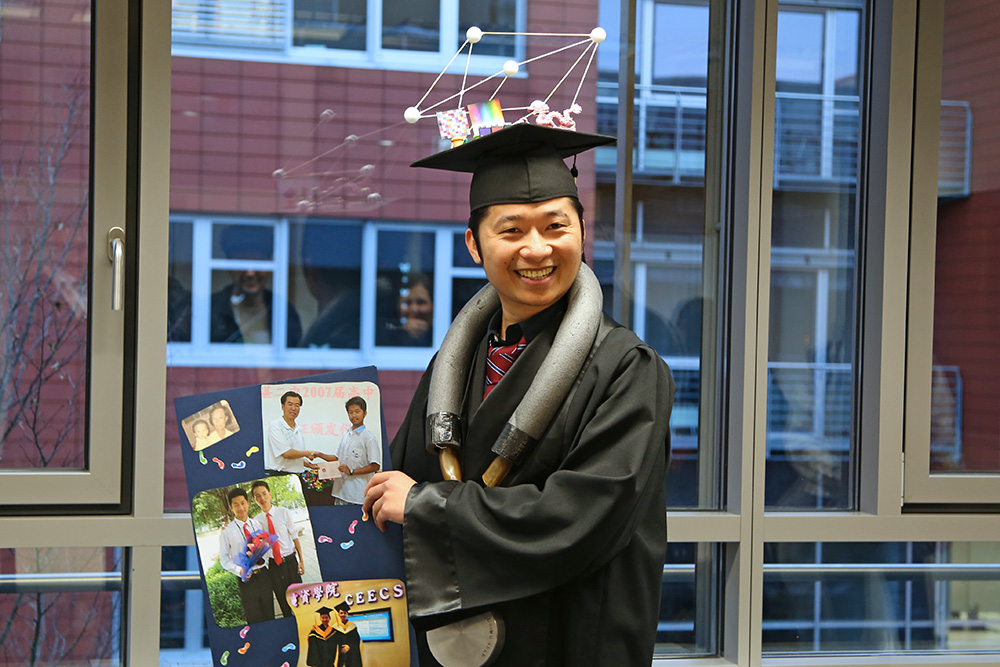Promotion of Danwu Chen
Congratulations! Danwu Chen, employee of the "3D Printing Technologies" competence center, successfully defended his dissertation "Deep learning for characterizing full-color 3D printers: accuracy, robustness, and data efficiency" on November 21, 2023. The reviewers of the thesis were Prof. Dr. Arjan Kuijper (TU Darmstadt/Fraunhofer IGD), Prof. Dr.-Ing. Dieter W. Fellner (TU Darmstadt/Fraunhofer IGD), and Prof. Dr. Philipp Urban (NTNU/Fraunhofer IGD).
Abstract
High-fidelity color and appearance reproduction via multi-material-jetting full-color 3D printing has seen increasing applications, including art and cultural artifacts preservation, product prototypes, game character figurines, stop-motion animated movie, and 3D-printed prostheses such as dental restorations or prosthetic eyes.
To achieve high-quality appearance reproduction via full-color 3D printing, a prerequisite is an accurate optical printer model that is a predicting function from an arrangement or ratio of printing materials to the optical/visual properties (e.g. spectral reflectance, color, and translucency) of the resulting print. For appearance 3D printing, the model needs to be inverted to determine the printing material arrangement that reproduces distinct optical/visual properties such as color. Therefore, the accuracy of optical printer models plays a crucial role for the final print quality. The process of fitting an optical printer model's parameters for a printing system is called optical characterization, which requires test prints and optical measurements. The objective of developing a printer model is to maximize prediction performance such as accuracy, while minimizing optical characterization efforts including printing, post-processing, and measuring.
In this thesis, I aim at leveraging deep learning to achieve holistically-performant optical printer models, in terms of three different performance aspects of optical printer models: 1) accuracy, 2) robustness, and 3) data efficiency.
First, for model accuracy, we propose two deep learning-based printer models that both achieve high accuracies with only a moderate number of required training samples.
Second, for model robustness, we propose a methodology to induce physically-plausible constraints and smoothness into deep learning-based optical printer models.
Finally, for data efficiency, we propose a learning framework that significantly improves printer models' data efficiency by employing existing characterization data from other printers. We also propose a contrastive learning-based approach to learn dataset embeddings that are extra inputs required by the aforementioned learning framework.
With these proposed deep learning-based methodologies significantly improving the three performance aspects (i.e. accuracy, robustness, and data efficiency), a holistically-performant optical printer model can be achieved, which is particularly important for color- and translucency-critical applications such as dental restorations or prosthetic eyes.
 Fraunhofer Institute for Computer Graphics Research IGD
Fraunhofer Institute for Computer Graphics Research IGD
